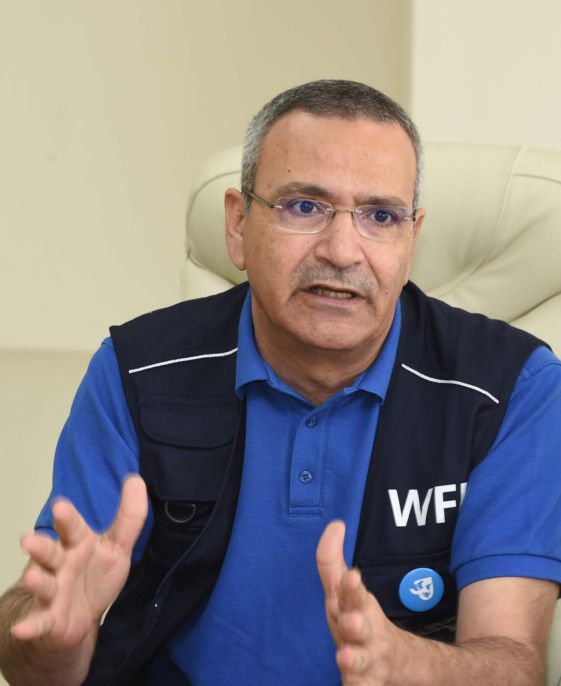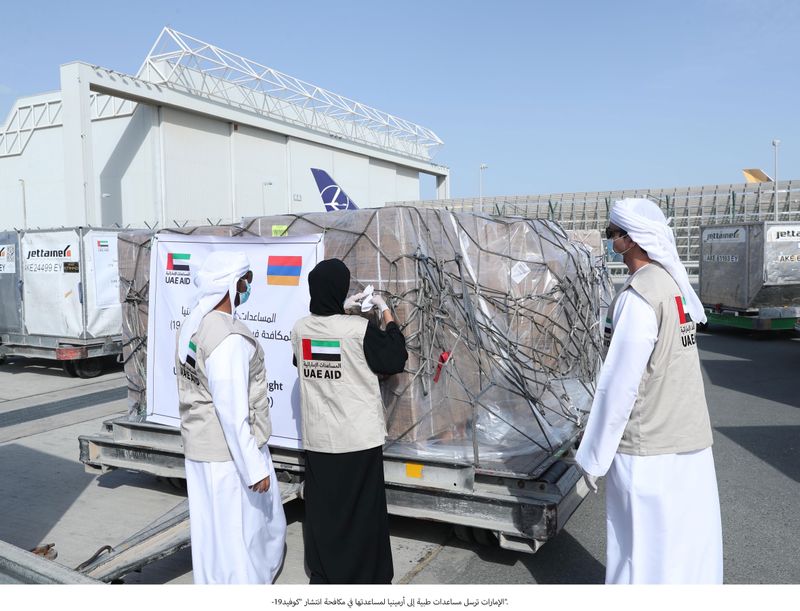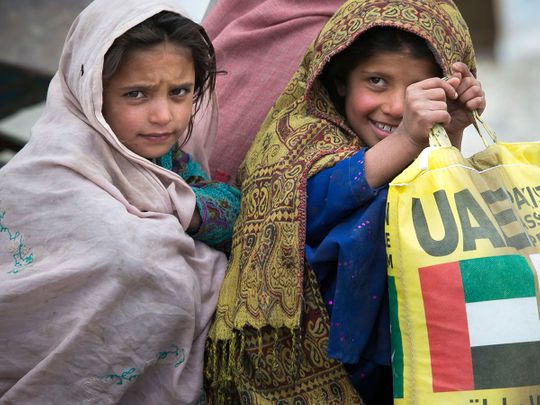Dubai: As the World Food Programme (WFP) gets set to receive the Nobel Peace Prize in a few hours from now, the UAE has been acknowledged as is its sixth top donor globally, Gulf News can reveal.
In an exclusive interview ahead of the award ceremony, Mageed Yahia, director of the WFP office in the UAE and WFP’s representative in the GCC, expressed gratitude to the UAE and its people for reaching out to those in need over the years.

Image Credit: Supplied
He said, “Throughout the years, the UAE has demonstrated great and unfailing support to WFP. Almost every time we needed help or funding, the UAE would step up to the rescue, in many times as a first responder to various crises near and far.”
He said, “Over the years, the UAE has made significant contributions to WFP’s various operations in the Middle East and in Africa. Thanks to its continuous support and financial contributions, the UAE became the 6th top donor globally to WFP’s operations in 2019.”
He said in addition to its direct support and contributions to WFP operations, the UAE has also hosted WFP’s offices and warehouses since 2004.
UAE is WFP’s largest humanitarian hub
“The strategic location of the country, its state-of-the-art logistical infrastructure, easy access to major suppliers and the government’s commitment to WFP, have turned the UAE into WFP’s largest humanitarian hub in the world with fast access to emergencies around the globe, enabling to reach one third of our 100 million beneficiaries within three hours and two thirds within seven hours. This has greatly contributed to the efficiency of our operations and our efforts to save lives and change live,” he noted.
Yahia said, “Our Nobel Peace Prize award is also a tribute to our partners and donors – like the UAE – for their support and partnership. We are hugely grateful to the government and people of the UAE’s for this.”
The WFP is set to accept the 2020 Nobel Peace Prize at 1 pm (CET) at a much-awaited ceremony today. WFP executive director David Beasley will receive the award on behalf of the agency and its 20,000 staff in a virtual ceremony that can be viewed worldwide on the Nobel site.
Image Credit: Supplied
Yahia said WFP is humbled by the award of the 2020 Nobel Peace Prize. “It is recognition of the important link between conflict and hunger and the critical role that food assistance plays in supporting the first step towards peace and stability. It puts the struggle of the 690 million people who go to bed hungry at the centre of the world’s attention, provides a platform to amplify their voices and creates momentum to mobilise support.”
According to him, the link between hunger and armed conflict is a vicious circle. “War and conflict can cause food insecurity and hunger, just as hunger and food insecurity can cause latent conflicts to flare up and trigger the use of violence. We will never achieve the goal of zero hunger unless we also put an end to war and armed conflict.”
According to WFP, the three worst food crises are all in countries affected by conflict: Afghanistan, the Democratic Republic of Congo and Yemen. Four conflict-affected countries are now facing an elevated risk of famine. They are Yemen, South Sudan, Nigeria (north-east) and Burkina Faso.

Image Credit: Supplied
Figures at a glance
• Of the nearly 700 million hungry (i.e. chronically food insecure) people in the world, about 60 per cent live in countries affected by conflict.
• Some 77 million people – more than half of the 135 million people facing acute hunger in the world – are located in 22 countries affected by conflict and insecurity.
• In 8 out of 10 of the world’s main food crises, conflict and insecurity are among the key drivers of acute hunger.
• About two-thirds of WFP’s life-saving food assistance goes to people facing severe food crises, most of them caused by conflict.

